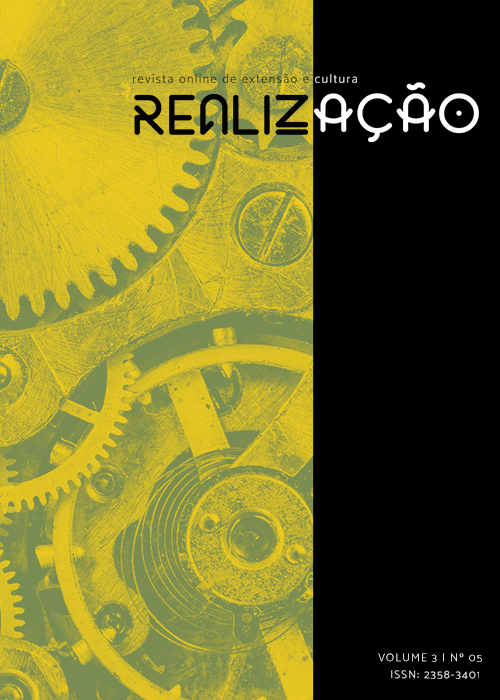Quality in food production and preservation in the Lagoa Grande and Amparo settlements, Itahum-MS: a brief report
Keywords:
Cerrado , Native fruits, Hygiene, Food handlingAbstract
Plant extraction is a guarantee of subsistence and an important source of income for several rural communities in Brazil, improving the quality of life and enabling people to remain on the land. Given the importance of this economic activity in local communities, projects that bring improvements in the quality of food production and preservation and enable safe marketing in these settlements are of great importance. With this aim, this activity was carried out with the families of the Lagoa Grande and Amparo settlements, located in the district of Itahum, in the region of Dourados-MS. Initially, a visit to the Cerrado and the population was made and, subsequently, several lectures were held with the aim of encouraging the use of Cerrado fruits. During the lectures, simulations were carried out to improve understanding of what was being discussed. At the end, a questionnaire was distributed to evaluate and monitor the yield. The team prepared a booklet containing good practices in food handling, as well as personal hygiene. This booklet was distributed at the end of the outreach activity. The booklet served as an easily accessible communication channel that provided clear information, aiming to change behavior so that the information could be truly learned. Community members who demonstrated interest were trained to act as agents for spreading ideas within the community.
Downloads
References
CARMO, G. M. I.; OLIVEIRA, A. A.; DIMECH, C. P.; SANTOS, D. A.; ALMEIDA, M. G.; BERTO, L. H.; ALVES, R. M. S.; CARMO, E. H. Doenças Transmitidas por Alimentos (DTA): Vigilância epidemiológica das Doenças Transmitidas por Alimentos no Brasil, 1999 -2004. Boletim Eletrônico Epidemiológico, Secretaria de Vigilância em Saúde(SVS), São Paulo, v.5, n.6, p.1-7, 2005.
COUTINHO, L. M. O cerrado e a ecologia do fogo. Ciência Hoje, v.12, n.68, p.22-30, 1990.FIPA –Federação das Indústrias Portuguesas Agro-Alimentares. Segurança Alimentar09/07/2002.
INCRA -INSTITUTO NACIONAL DE COLONIZAÇÃO E REFORMA AGRÁRIA –INCRA, 2016.
VAN AMSON, G. Comércio ambulante de alimentos em Curitiba: Perfil dos vendedores e propostas para programas de boas práticas higiênicas na manipulação de alimentos. Dissertação de Mestrado. Curitiba. Universidade Federal do Paraná. 2005, 63p.
Downloads
Published
How to Cite
Issue
Section
License
Copyright (c) 2016 Ana Paula Lemke, Rennan Oliveira Meira, Lais Gonçalves Ortolani, Tania Cristina Pontes, Max Seiji Tsunada, Viviane Wruck Trovato, Adriane Federici Bido, Lucas Lopes da Silveira Peres, Luan Carlos Morais Dutra, Natiele Zanardo Carvalho, João Paulo Sardin Nasário, Ana Isabel Sobreiro, Caio Augusto M. Silva, Rosilda Mara Mussury

This work is licensed under a Creative Commons Attribution-NonCommercial-ShareAlike 4.0 International License.
Autores que publicam nesta revista aceitam as normas de publicação, bem como, concordam com os seguintes termos:
(a) O Conselho Editorial se reserva ao direito de efetuar, nos originais, alterações da Língua portuguesa para se manter o padrão culto da língua, respeitando, porém, o estilo dos autores.
(b) Autores mantêm os direitos autorais e concedem à revista o direito de primeira publicação, com o trabalho simultaneamente licenciado sob a Creative Commons Atribuição-NãoComercial-CompartilhaIgual 4.0 Internacional que permite: Compartilhar — copiar e redistribuir o material em qualquer suporte ou formato e Adaptar — remixar, transformar, e criar a partir do material. A Creative Commons Atribuição-NãoComercial-CompartilhaIgual 4.0 Internacional considera os termos seguintes:
- Atribuição — Você deve dar o crédito apropriado, prover um link para a licença e indicar se mudanças foram feitas. Você deve fazê-lo em qualquer circunstância razoável, mas de nenhuma maneira que sugira que o licenciante apoia você ou o seu uso.
- NãoComercial — Você não pode usar o material para fins comerciais.
- CompartilhaIgual — Se você remixar, transformar, ou criar a partir do material, tem de distribuir as suas contribuições sob a mesma licença que o original.
- Sem restrições adicionais — Você não pode aplicar termos jurídicos ou medidas de caráter tecnológico que restrinjam legalmente outros de fazerem algo que a licença permita.


